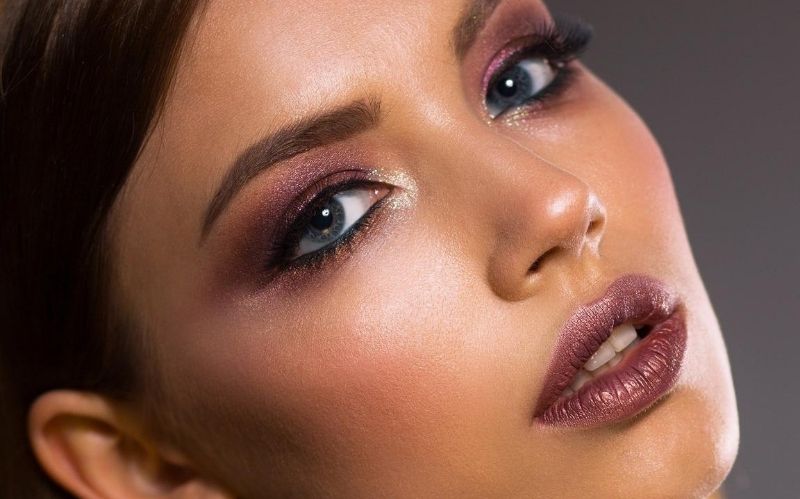Skin Bleaching – Does It Really Work?

Skin bleaching or skin lightening is a common practice, especially among people with dark skin all over the world. Women are the most frequent users, and despite their knowledge of the iatrogenic effects, they still use skin lightening products. The bleaching process involves the use of lotions, soaps, creams, among other cosmetic products such as battery acid, washing powder, toothpaste, and gel products. You may wonder whether to use bleaching products or not to use them, but despite the common perception that lightening products are all bad, sometimes, the procedure can be beneficial. Let’s look at scenarios where skin bleaching works and other cases where it doesn’t work. (Image Credit: Irina Gromovataya/Pixabay)
How Skin Bleaching Works
Everyone has a different genetic composition, and as a result, they have different skin tones. Besides, some people suffer from various skin conditions such as post-inflammatory hyperpigmentation or melasma; as a result, they are forced to use skin bleaching agents. You should, however, know that skin lightening products don’t have bleaches in them and that they work on your skin by reducing melanin pigment. When you apply the bleaching products on the hyperpigmented areas, the products disrupt the production of melanin. As a result, your skin becomes more uniform, and you will realize that your skin tone becomes lighter. However, some bleaching products have exfoliants that cause intense skin peeling. Your skin quickly regenerates, hence, as the skin peels off, fresh skin grows, and the dead cells are wiped off.
Bleaching Side Effects
Most dermatologists recommend partial use of Hydroquinone, a cream product that’s frequently sold over the counter and one that’s FDA approved. However, the use of such bleaching products raises controversy. Bleaching products rarely cause allergic reactions, although sometimes, you will experience itchiness, dryness, or redness in the region where products are applied. Besides, there are several possible side effects associated with bleaching such as mercury poisoning, dermatitis, exogenous ochronosis, steroid acne, and nephrotic syndrome. As earlier stated, you should take partial responsibility and look for products that are safe and effective for your skin.
Some lightening products such as Hydroquinone, have carcinogenic properties which are often harmful to your skin. Besides, such bleaching products can increase your chances of developing skin cancer; therefore, you should consider the doctor’s prescription whenever you use such products. Some users tend to abuse bleaching products since they are readily available over the counter; as a result, they end up developing skin complications. In the past, skin bleaching products were banned across Europe, but the ban was lifted in some countries, and leaders advised users to stick to dermatologist prescriptions when using the products.
Available Natural Bleaching Options
Several natural skin lightening remedies might be suitable for your skin. Therefore, you should not worry about your skin condition, but instead, consider visiting a dermatologist and explore all available options. Some options are easy to find, and they are free of chemicals. Dermatologists would advise on using Chinese herbs such as Cinnamomum Subavenium, topical creams that contain Azelaic acid, Vitamin C products, among other natural bleaching products. Besides, studies have proven that vitamin E oral supplements and pomegranate extracts have a natural property that could hinder melanin production; therefore, prioritize the natural options before jumping to chemical products.
If you have uneven skin tone, consider using a daily exfoliant or a suitable skin peeling strategy to work the magic. However, if you have necessary resources, identify a skin bleaching product that’s free of toxins; preferably, one that’s recommended by a dermatologist. Such products have expensive ingredients; hence they are more expensive, but studies have revealed that they are less harmful compared to the cheaper over the counter substitutes.
Recommended Way of Using Lightening Products
For an even skin tone, skin experts would advise that you only apply bleaching products on the affected region twice each day. However, follow the instructions indicated on the package or the advice given by your doctor. For the products to work effectively, clean your hands before and after using the bleach and apply the agents using a cotton pad or with clean hands. Besides, never touch your mouth, eyes or nose after using the products, and consider using sunscreen products that reduce the damage that results from Ultra-Violet exposure.
Generally, bleaching products do work, although you can develop mild skin effects as a result of using chemical bleaches. However, it’s recommended that people with skin conditions use natural products that limit melanin production. Besides, do away with OTC skin lightening products that are not FDA approved since they can cause hyperpigmentation among other skin conditions. If you are nursing a baby, or you are pregnant, avoid using such products since it could affect the infant.











Leave a Reply